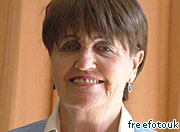The use of Sharia ‘courts’ is on the increase in Britain with thousands using Islamic law to settle disputes, according to the BBC.
The news comes as a leading barrister claims that Sharia law is compatible with human rights, and beneficial to communities.
However, critics say the courts discriminate against women and should not operate as a parallel legal system.
Tripled
A Bill has been brought before the House of Lords by Christian humanitarian, Baroness Cox, to curb the growth of Sharia courts.
Sheikh Haitham al-Haddad, a representative of the Islamic Sharia Council at Leyton, told BBC Asian Network that his caseload at the east London council had “easily more than tripled” over the past three to five years – dealing with up to 300 disputes a month.
And earlier this week leading barrister Sadakat Kadri, also a Harvard Law School contemporary of Barack Obama, called for the UK to become more Sharia-literate.
Acknowledged
Regarding Sharia law councils, Mr Kadri said: “It’s very important that they be acknowledged and allowed to exist.”
He also told the Guardian that the courts were good for “the community as a whole”.
In 2009, think-tank Civitas reported that an estimated 85 Sharia councils could be operating in Britain.
Oppressive
But Sharia opponents believe it discriminates against women as well as rulings falsely claiming legal jurisdiction over criminal and family law.
Terry Sanderson, president of the National Secular Society, argued that the UK’s rule of law “must not be compromised by the introduction of a theocratic legal system operating in parallel.”
Last year Baroness Cox introduced the Arbitration and Mediation Services (Equality) Bill to the House of Lords, which aims to tackle discrimination suffered by Muslim women under Sharia law.
Coercion
If passed, it would firmly outlaw the practice of giving women’s testimonies half the weight of men’s and create a criminal offence of falsely claiming legal jurisdiction.
Speaking about Muslim women the Baroness said: “We must do all that we can to make sure they are free from any coercion, intimidation or unfairness”.
Under the 1996 Arbitration Act the rulings of religious arbitration tribunals, including the Muslim Arbitration Tribunal, can be enforced in commercial and civil cases.
The BBC reports that Sharia councils have been operating in the UK since 1982, however these locally-appointed councils have no legal powers and cannot impose any penalties.

